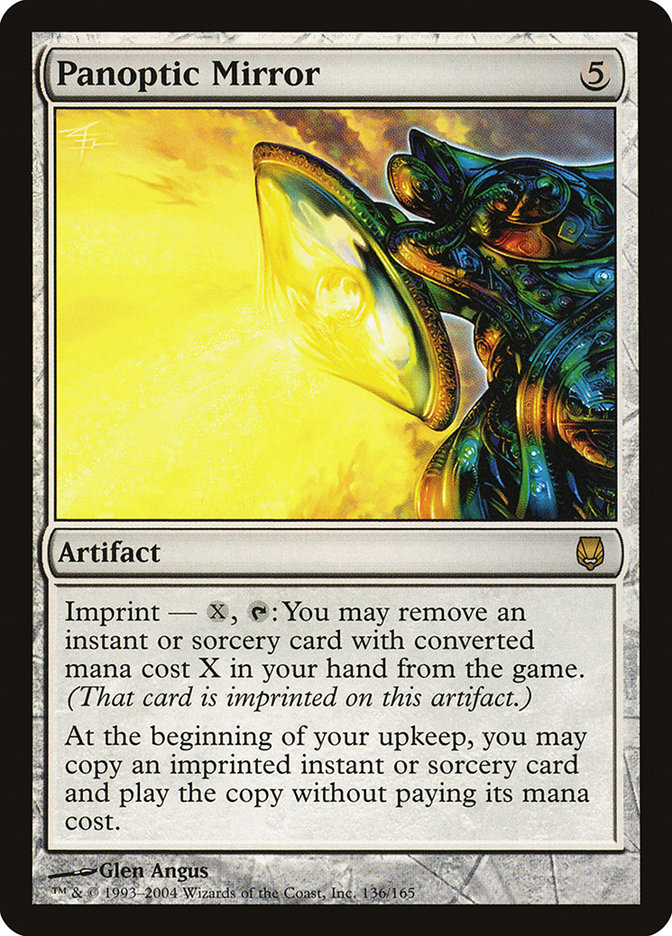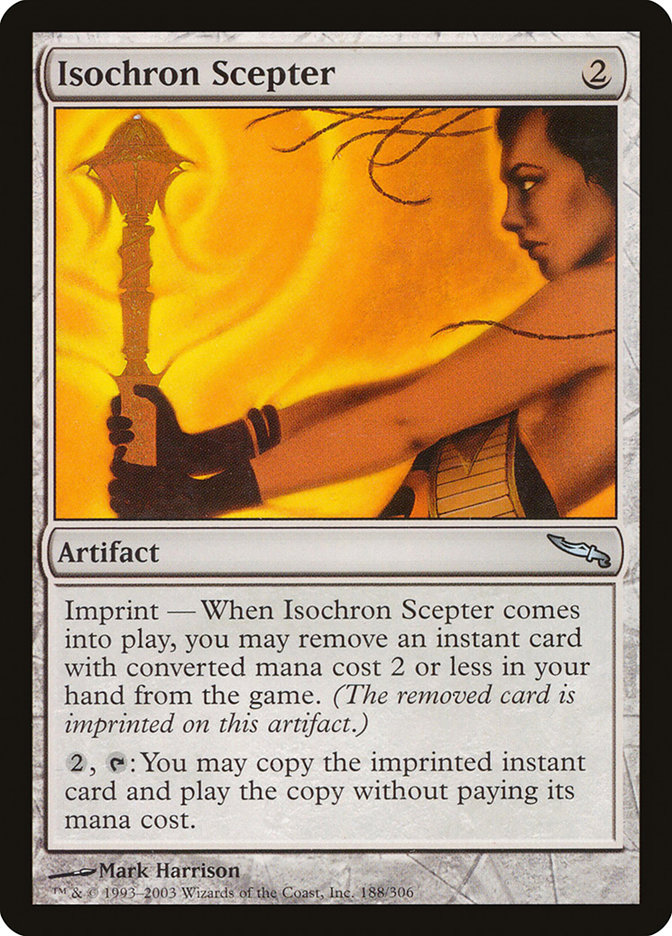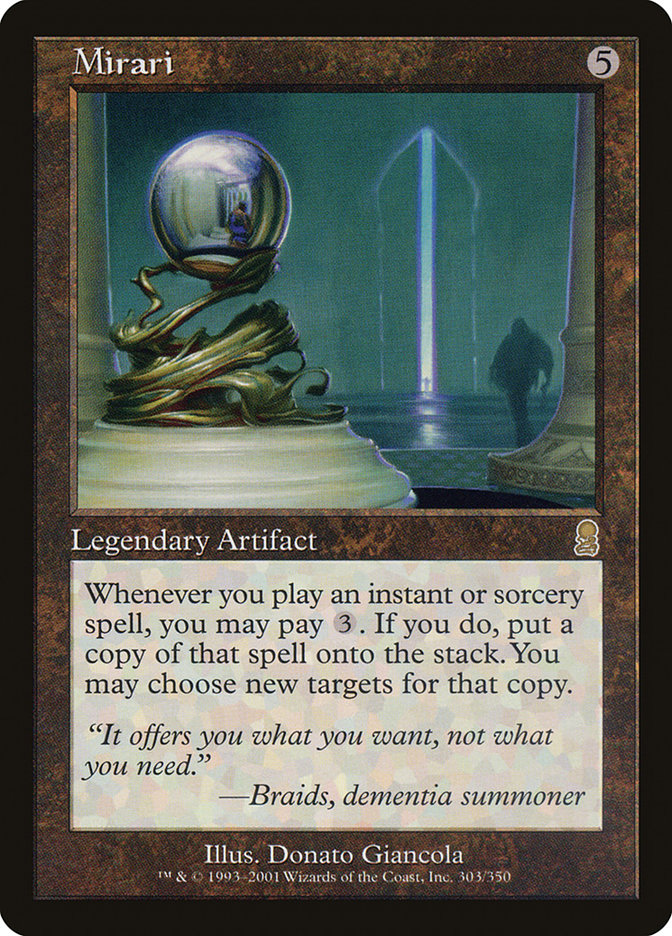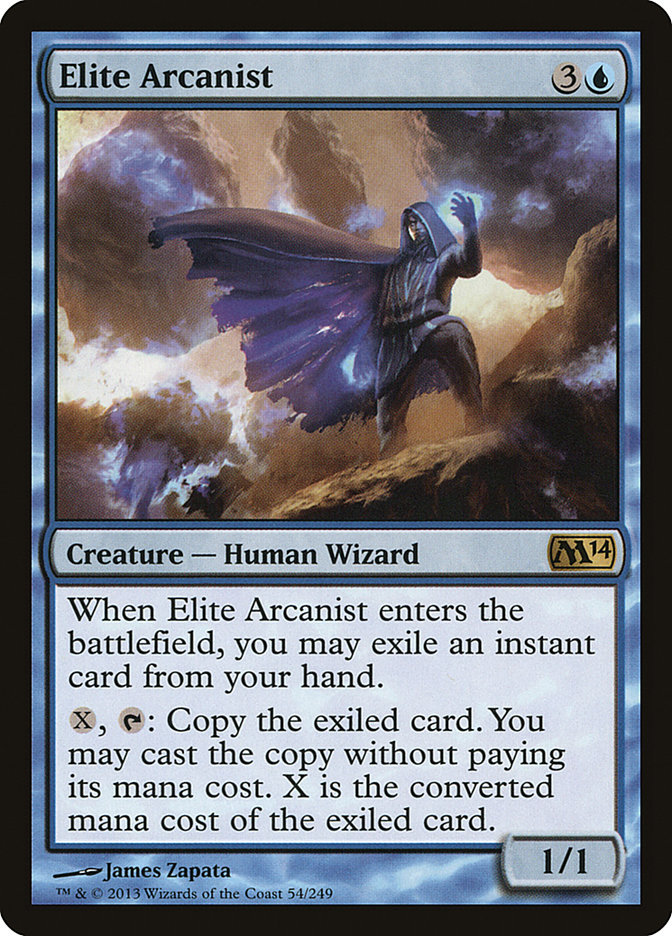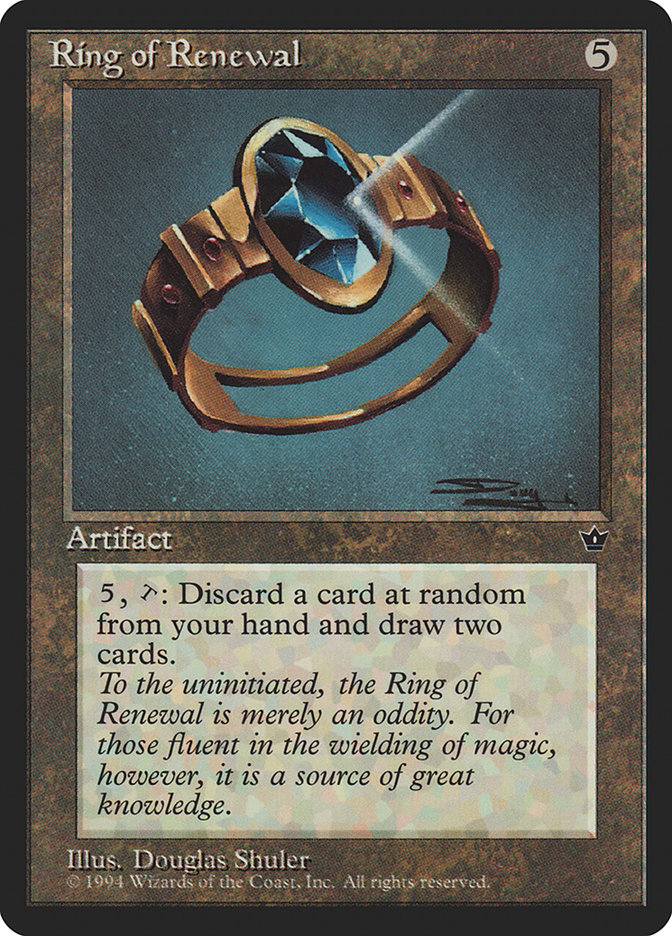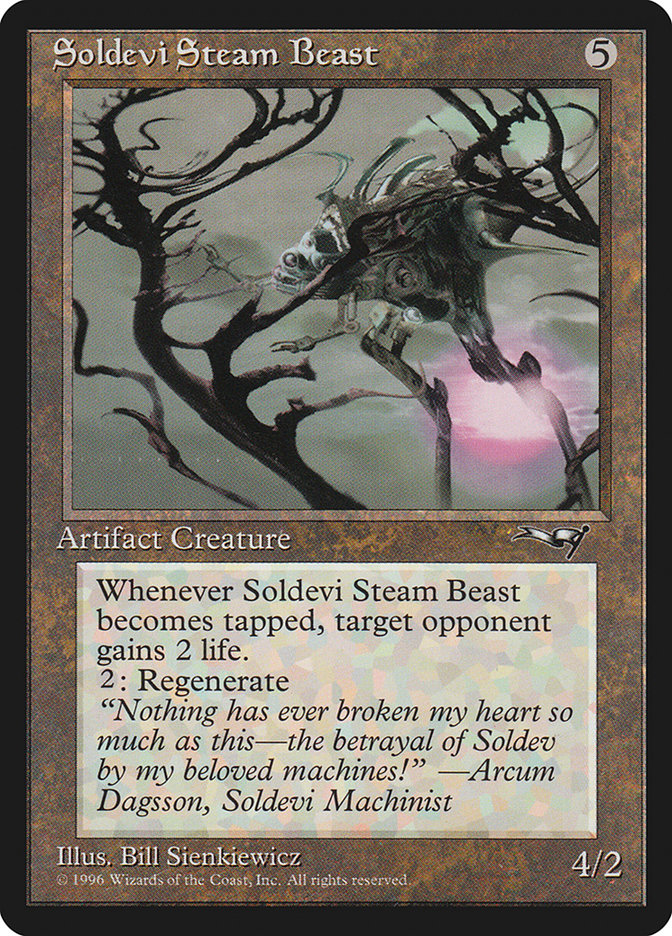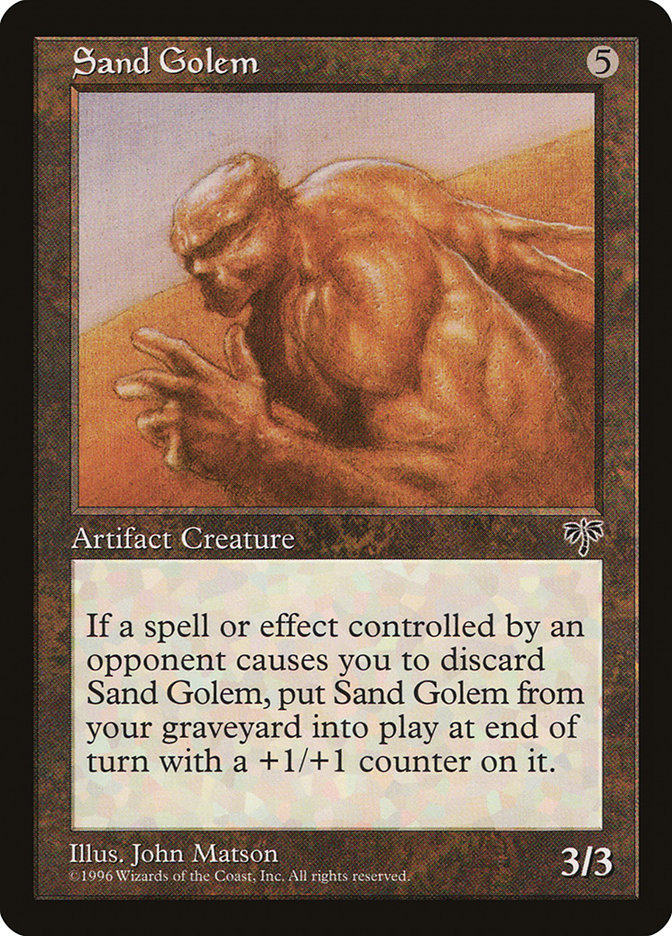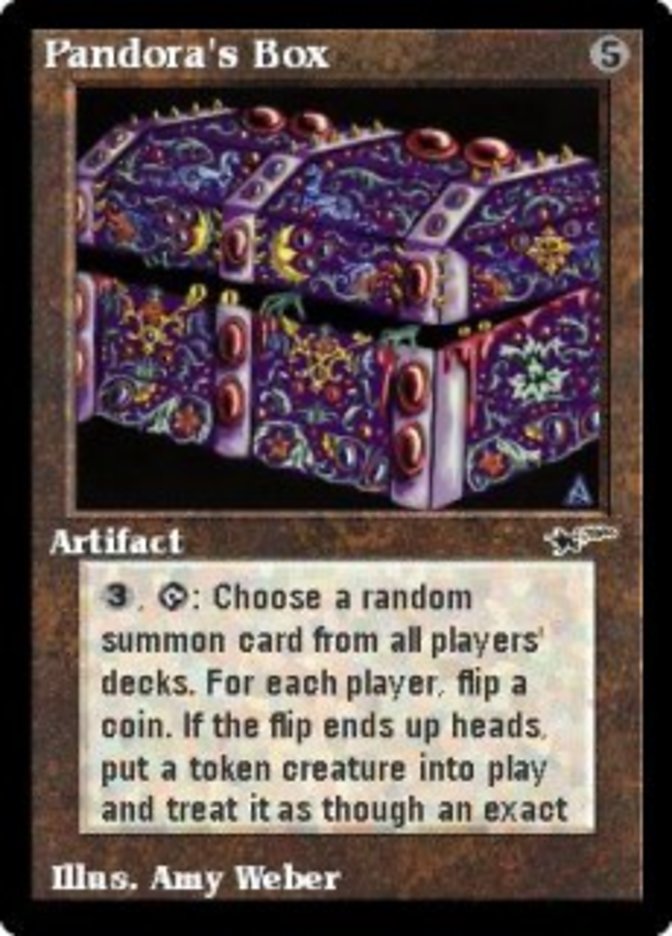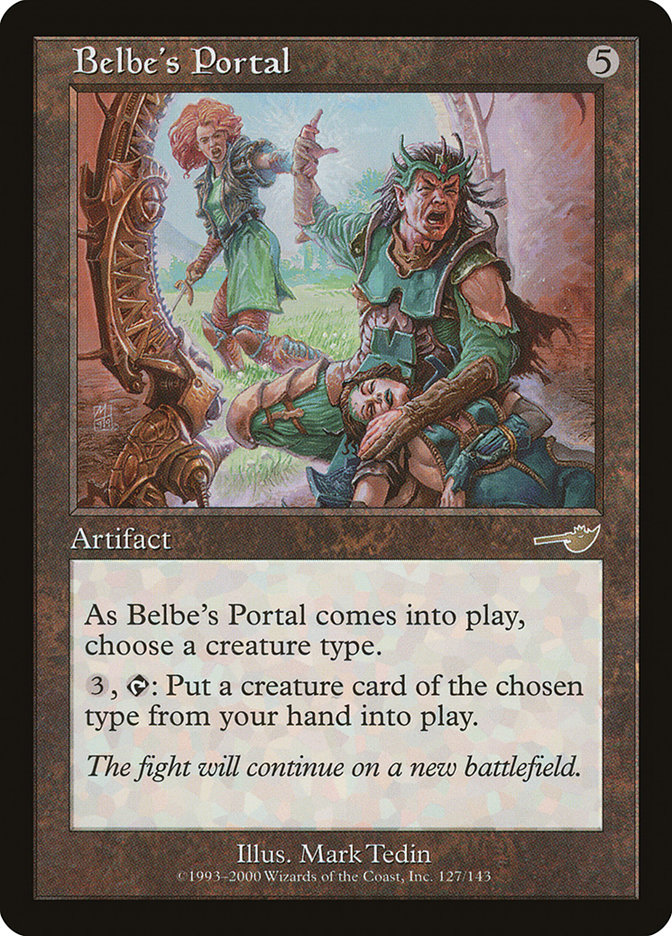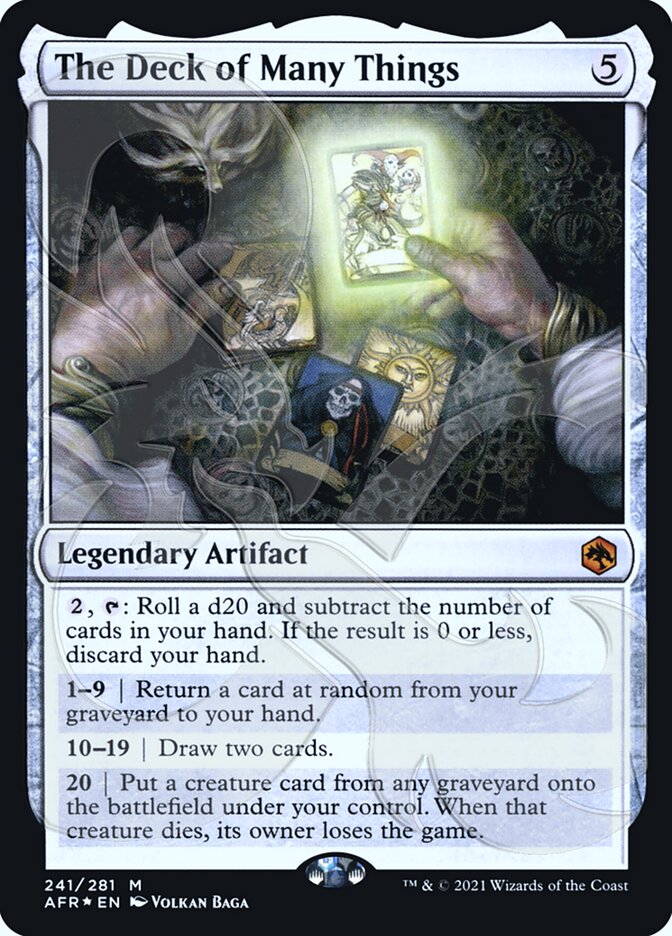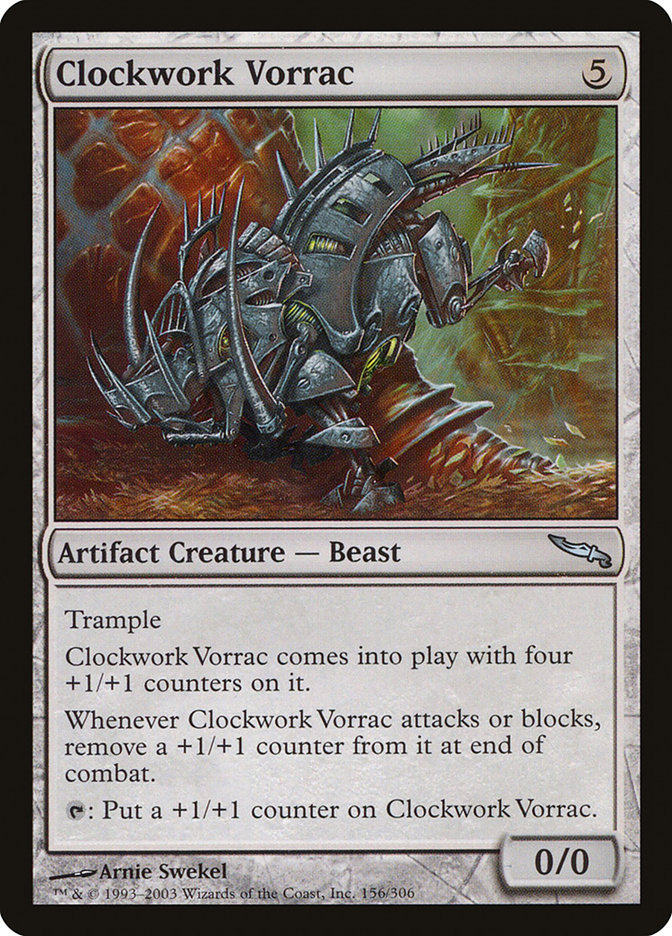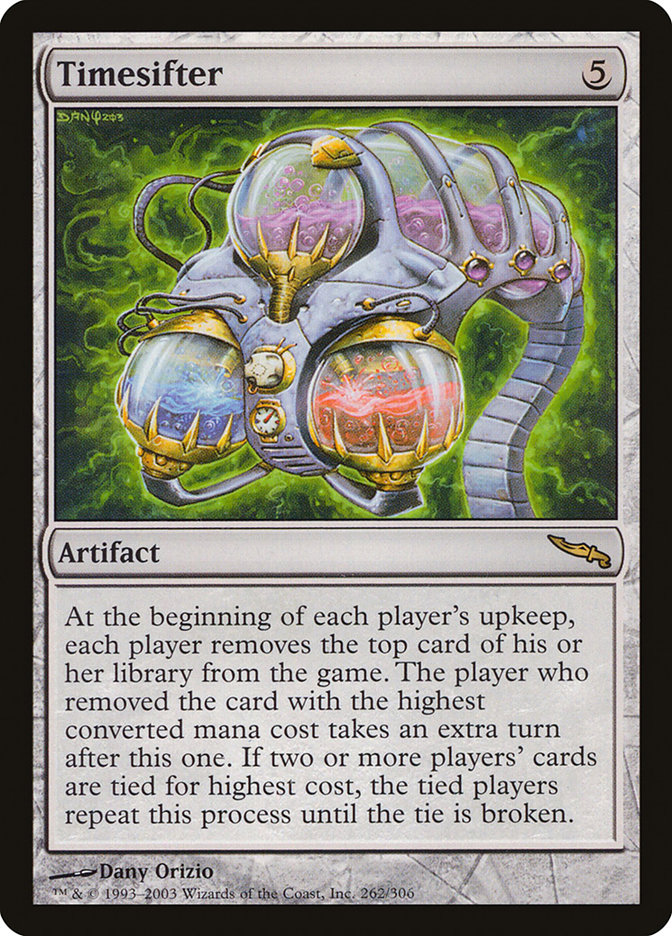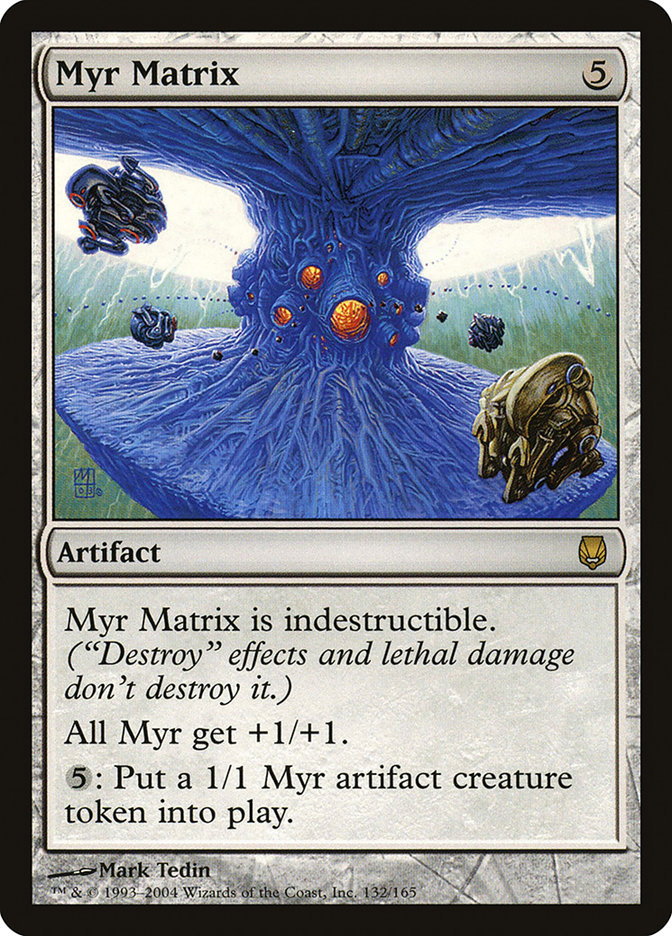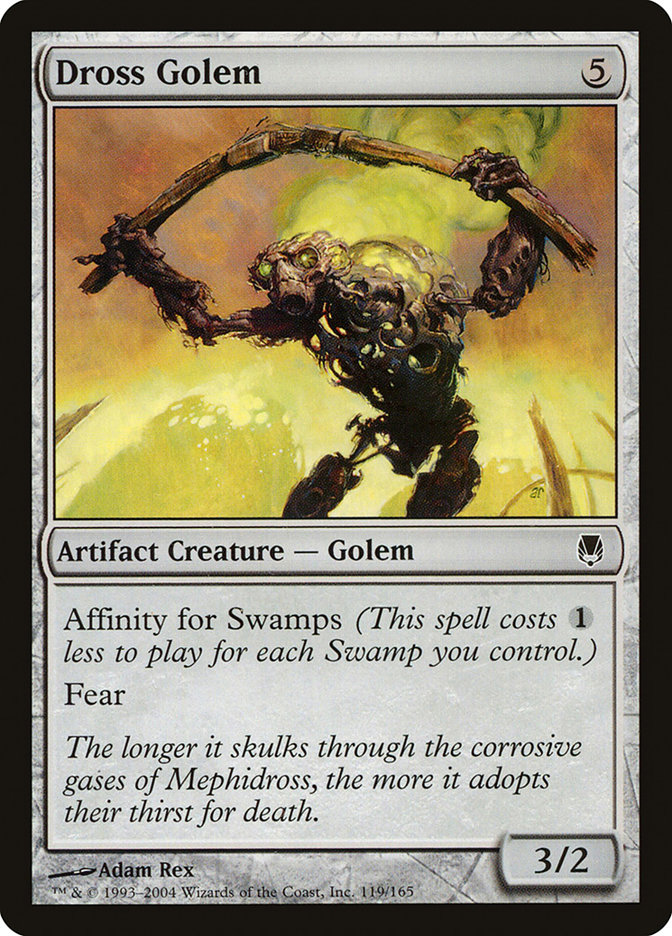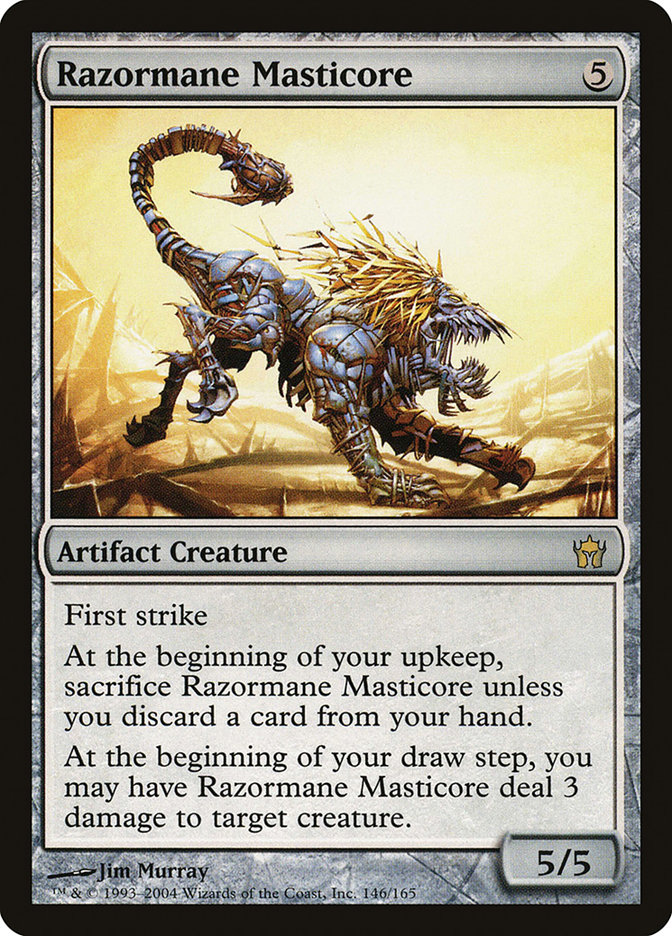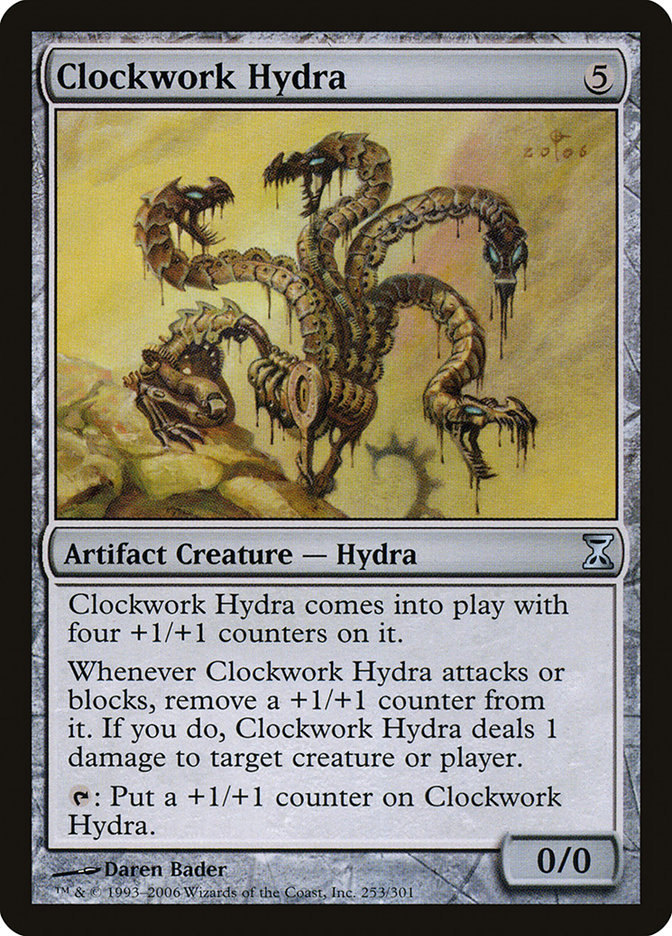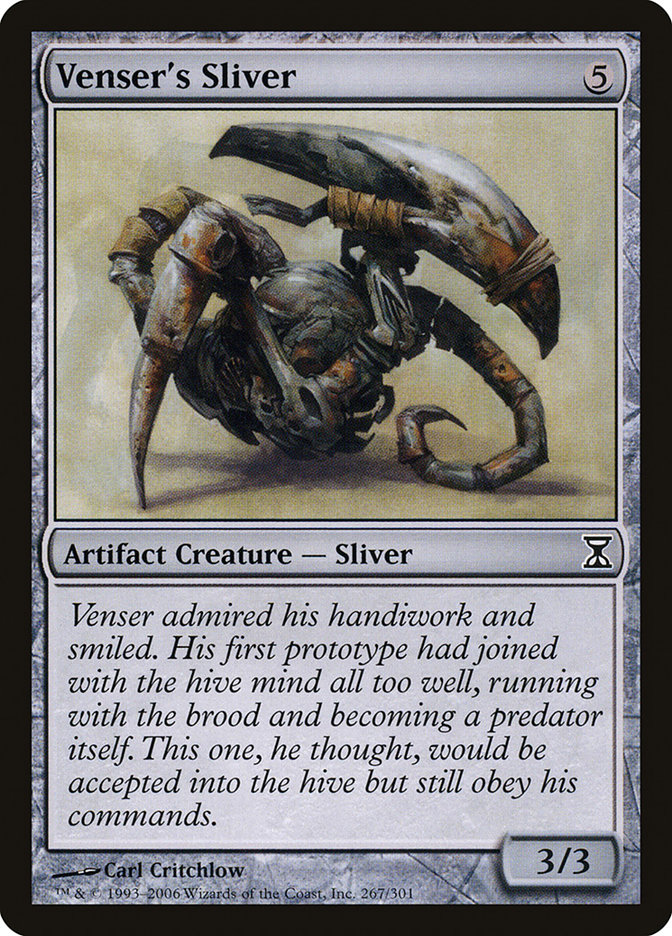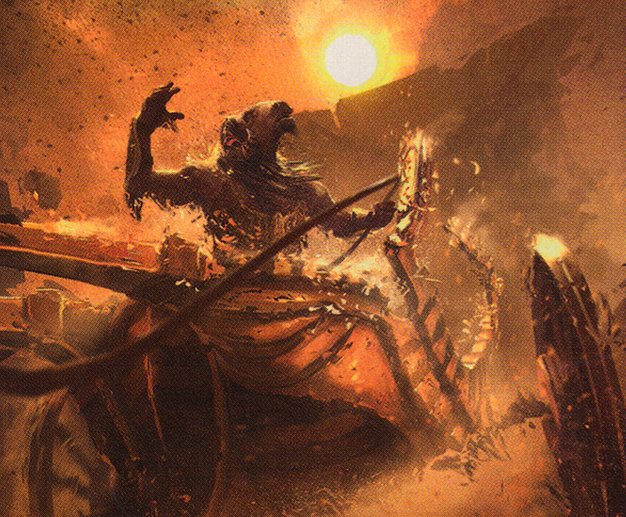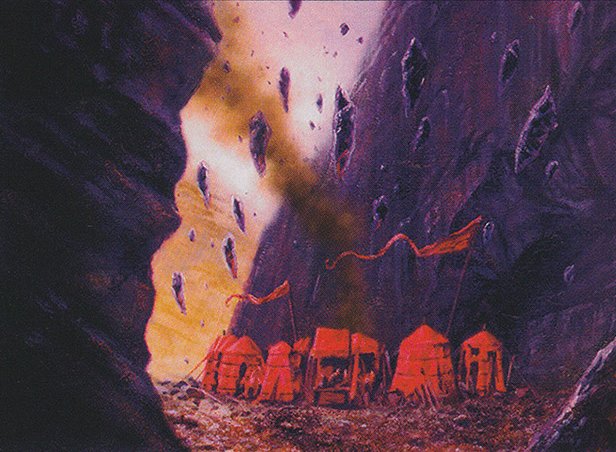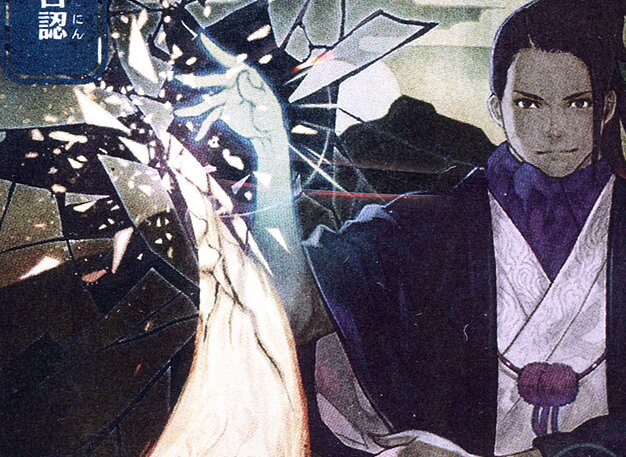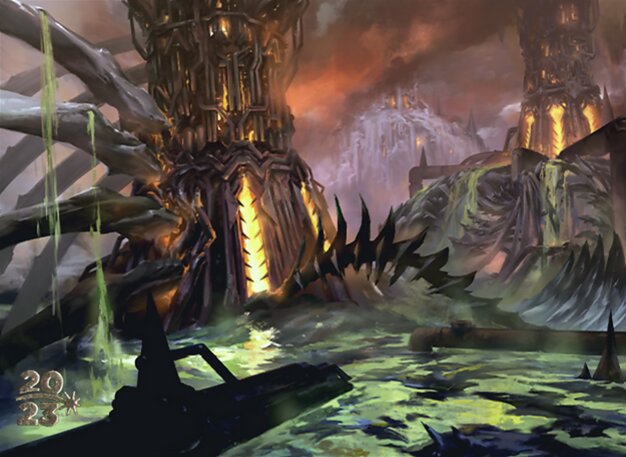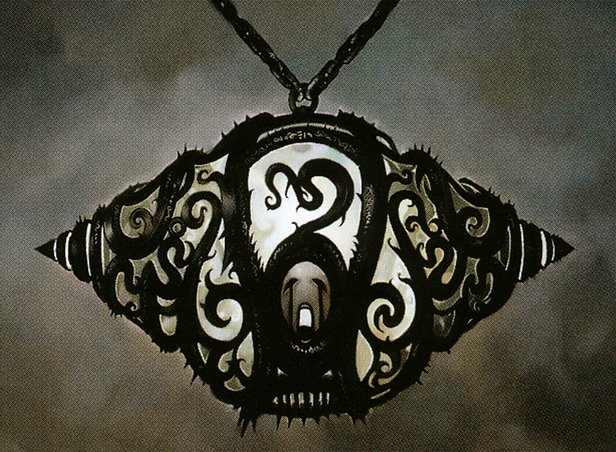Panoptic Mirror MTG Card
| Mana cost | |
| Converted mana cost | 5 |
| Rarity | Rare |
| Type | Artifact |
| Abilities | Imprint |
| Released | 2004-02-06 |
| Set symbol | |
| Set name | Darksteel |
| Set code | DST |
| Number | 136 |
| Frame | 2003 |
| Layout | Normal |
| Border | Black |
| Illustred by | Glen Angus |
Key Takeaways
- Imprinting spells on Panoptic Mirror provides repeat casting, a boon for card advantage.
- It’s versatile in strategy but has high mana costs and specific activation requirements.
- Variants like Isochron Scepter offer alternatives but with differing restrictions.
Text of card
Imprint , : You may remove an instant or sorcery card with converted mana cost X in your hand from the game. (That card is imprinted on this artifact.) At the beginning of your upkeep, you may copy an imprinted instant or sorcery card and play the copy without paying its mana cost.
Card Pros
Card Advantage: The unique ability of the Panoptic Mirror to imprint a spell gives players the benefit of repeatedly casting that spell each turn without expending additional cards from their hand. This can snowball into a significant card advantage as your opponents struggle to keep up with the recurring value.
Resource Acceleration: Imprinting a spell that generates mana or produces tokens effectively turns Panoptic Mirror into a resource acceleration machine. As long as the mirror remains on the battlefield, it can provide a consistent boost to your mana pool or other resources with each upkeep.
Instant Speed: Even though the Panoptic Mirror itself does not operate at instant speed, the spells cast from it are not restricted to your main phases. This means that instants imprinted onto the mirror can be utilised during an opponent’s turn, giving you the flexibility to react to threats or opportunities as they arise, essentially at instant speed.
Card Cons
Discard Requirement: One of the drawbacks to Panoptic Mirror is its imprint ability, which mandates you to exile one of your spells from your hand. This can be a double-edged sword because while setting up a repetitive cast, it limits your hand and can put you at a disadvantage if you’re running low on cards.
Specific Mana Cost: Panoptic Mirror demands a precise mana cost to both cast and activate. Initially, investing five mana to cast it can be taxing, and given the required diversity of mana colors to activate the ability, it might not seamlessly fit into all decks, especially those with a stringent mana base.
Comparatively High Mana Cost: With an initial investment of five mana and an additional cost for the activation, Panoptic Mirror has a comparatively high combined mana cost. This can be especially cumbersome in fast-paced games or formats where efficient mana usage is paramount, and alternative card options could provide more immediate impacts on the game state.
Reasons to Include in Your Collection
Versatility: Panoptic Mirror offers a unique opportunity to copy instant and sorcery cards, allowing it to adapt to various strategic needs. Whether you’re aiming for control or seeking an advantage in longer games, this artifact can seamlessly integrate into your deck.
Combo Potential: This card provides a platform for numerous combos, as imprinting the right instant or sorcery can lead to game-winning plays. Enabling repeatable effects every turn, the Mirror can become the cornerstone of a powerful deck synergy.
Meta-Relevance: In metas where games are drawn out and incremental advantages matter, Panoptic Mirror shines by repeatedly leveraging a single card’s effect. This makes it particularly useful against decks that cannot easily remove artifacts or counter repeated spell-casting.
How to beat
Panoptic Mirror stands as a unique artifact in Magic: The Gathering, offering players the ability to endlessly cast a single spell each turn without paying its mana cost. This can quickly turn a game in favor of those wielding it. Successfully disrupting this persistent threat becomes essential to maintain balance during a match.
Countering Panoptic Mirror requires a strategic approach. Artifact removal spells, such as Disenchant or Abrade, present immediate solutions to the problem, bypassing the need to deal with the imprinted spell itself. Additionally, employing instant-speed interaction allows players to react to the Mirror’s activation, preventing opponents from gaining its advantage even for a single turn.
Denying the opponent the resources to imprint a powerful spell in the first place is another effective strategy. This involves applying pressure to their mana base, possibly through land destruction or taxing effects, challenging their ability to cast high-cost spells. Ensuring the Mirror remains an underutilized tool surreptitiously turns the tide to your favor. Therefore, keeping removal ready or attacking the root of your opponent’s strategies can prevent Panoptic Mirror from dominating the game.
Cards like Panoptic Mirror
Panoptic Mirror stands out in Magic: The Gathering for its ability to imprint spells and cast them during each upkeep without paying their mana costs. Comparable to the Mirror is Isochron Scepter, an artifact that also imprints an instant card. The primary difference is Isochron Scepter’s limitation to instants with mana cost two or less, whereas Panoptic Mirror accepts any instant or sorcery regardless of cost, offering a wider range of strategic possibilities.
Mirari is another similar artifact that copies spells, but instead of free casting, it requires additional mana investment whenever you wish to copy a casted spell. This can ramp up the cost significantly over the course of a game, unlike the once-off investment in Panoptic Mirror. Meanwhile, Elite Arcanist allows for the repetition of a specific instant spell, but it necessitates tapping and is restricted solely to instants, contrasting Panoptic Mirror’s broader utility.
Ultimately, Panoptic Mirror’s potential for repeatable and cost-free spell casting every turn positions it uniquely within Magic: The Gathering’s roster of artifacts. It gives players a powerful tool for setting up relentless combos and dictating the pace of the game.
Cards similar to Panoptic Mirror by color, type and mana cost
Where to buy
If you're looking to purchase Panoptic Mirror MTG card by a specific set like Darksteel, there are several reliable options to consider. One of the primary sources is your local game store, where you can often find booster packs, individual cards, and preconstructed decks from current and some past sets. They often offer the added benefit of a community where you can trade with other players.
For a broader inventory, particularly of older sets, online marketplaces like TCGPlayer, Card Kingdom and Card Market offer extensive selections and allow you to search for cards from specific sets. Larger e-commerce platforms like eBay and Amazon also have listings from various sellers, which can be a good place to look for sealed product and rare finds.
Additionally, Magic’s official site often has a store locator and retailer lists for finding Wizards of the Coast licensed products. Remember to check for authenticity and the condition of the cards when purchasing, especially from individual sellers on larger marketplaces.
Below is a list of some store websites where you can buy the Panoptic Mirror and other MTG cards:
- eBay
- TCG Player
- Card Kingdom
- Card Market
- Star City Games
- CoolStuffInc
- MTG Mint Card
- Hareruya
- Troll and Toad
- ABU Games
- Card Hoarder Magic Online
- MTGO Traders Magic Online
See MTG Products
Legalities
Magic the Gathering formats where Panoptic Mirror has restrictions
| Format | Legality |
|---|---|
| Commander | Banned |
| Legacy | Legal |
| Modern | Legal |
| Oathbreaker | Legal |
| Vintage | Legal |
| Duel | Legal |
| Predh | Banned |
| Penny | Legal |
Rules and information
The reference guide for Magic: The Gathering Panoptic Mirror card rulings provides official rulings, any errata issued, as well as a record of all the functional modifications that have occurred.
| Date | Text |
|---|---|
| 2004-12-01 | As Panoptic Mirror’s triggered ability resolves, it allows you to create a copy of one of the instant or sorcery cards imprinted on Panoptic Mirror in the Exile zone (that’s where the imprinted card is) and then cast it without paying its mana cost. |
| 2004-12-01 | Exiling a card when the activated ability resolves is optional. If you choose to exile a card, you can exile only a card with converted mana cost equal to X. |
| 2004-12-01 | The triggered ability triggers only once each upkeep, not once per imprinted card. If no cards are imprinted on Panoptic Mirror when the triggered ability resolves, it does nothing. |
| 2004-12-01 | You don’t pay the spell’s mana cost. If the spell has X in its mana cost, X is 0. You do pay any additional costs for that spell. You can’t use any alternative costs. |
| 2004-12-01 | You may imprint a card on Panoptic Mirror in response to the upkeep-triggered ability. If you do, that card is available to copy when the triggered ability resolves. |
| 2005-03-01 | The creation of the copy and then the casting of the copy are both optional. |
| 2017-04-18 | To imprint a split card, you pay X equal to card’s converted mana cost, determined by the combined mana cost of its two halves. If the copied card is a split card, you choose which one side of it to cast, but you can’t cast both sides. |
